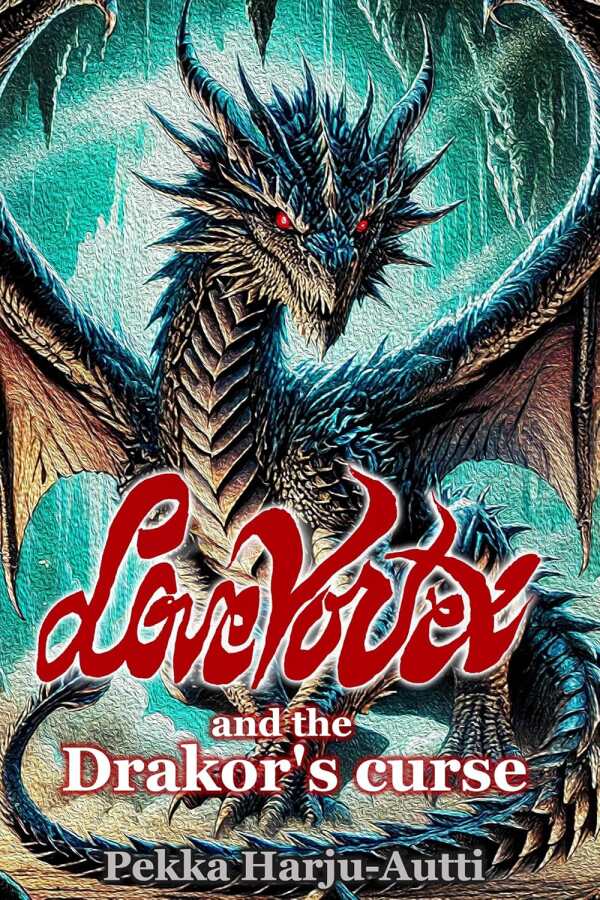
LoveVortex and the Drakor’s Curse
A man fated to outlive most around him takes a literal and existential journey on the seas in the portentous fantasy novel LoveVortex and the Drakor’s Curse.
Pekka Harju-Autti’s allegorical fantasy novel LoveVortex and the Drakor’s Curse is about the dangers of the open ocean and the pull of fate.
In a society where each person knows the date of their death and must live and love with that knowledge, Julius is predicted to live an unusually long life. Sailing on a trading mission, he faces storms, mutinies, and forces beyond human understanding. His sense of mortality informs his choices, but also his sense of fatedness: “Every mark is a sentence written before its subject takes a breath.”
Storms, piracy, and betrayals may drive the novel forward on the surface, but Julius’s voyage is both a literal and an existential one. The book moves at a straightforward but purposeful pace through Julius’s adventures, with detours to make space for him to reflect. As he faces violent seas and shifting loyalties, questions arise about what it means to live with the certainty of your ending.
The dynamic between Julius and his son, Peter, results in additional drama: Because Julius’s extended lifespan sets him apart, Peter’s comparatively brief life expectancy exacerbates the joys and tensions of their interactions. Julius imparts advice to his son while being aware of the likelihood that he will outlive Peter: “You may follow a shorter path than mine, yet each step must be taken with courage.”
The novel’s secondary characterizations are less weighty, with people present to reflect varying responses to human mortality. Some meet their fates with a sense of calm, while others resist; a few exist in state of denial. However, their varying approaches all serve to highlight Julius’s own unique burden, their stories most illuminating the stakes of his existence. And the worldbuilding also roils around this reigning sense of predestination, which informs every element of Julius’s maritime society. Social structures, family structures, and economic systems are all directed by it, with details about the rules of inheritance, marriage, and ambition all influenced by the certainty of death.
Life aboard Julius’s ship is narrated with more distinction, as with notes about fraying ropes and the taste of brine on parched lips. These tactile details flesh the story out beyond its philosophical concerns. Indeed, in handling Julius’s travels, the prose becomes precise and evocative, capturing both violent weather and instances of quiet reflection: “The sea heaved like a beast unsettled, yet within its roar lay the hush of finality.”
In the musing fantasy novel LoveVortex and the Drakor’s Curse, a seafaring voyage gives a man destined for a long life the chance to reflect on mortality and human resilience.
Reviewed by
John M. Murray
Disclosure: This article is not an endorsement, but a review. The publisher of this book provided free copies of the book and paid a small fee to have their book reviewed by a professional reviewer. Foreword Reviews and Clarion Reviews make no guarantee that the publisher will receive a positive review. Foreword Magazine, Inc. is disclosing this in accordance with the Federal Trade Commission’s 16 CFR, Part 255.
